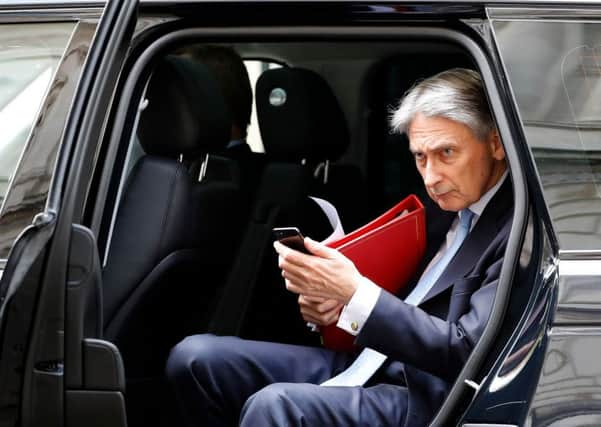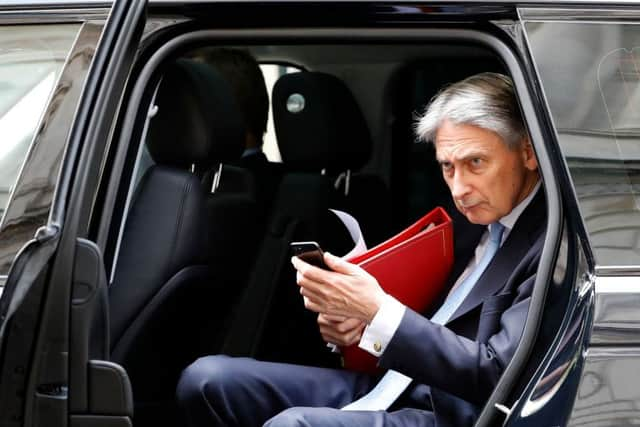Hammond at odds with Bank of England over post-Brexit regulation - reports


The Treasury is seeking to keep controls as closely aligned to Brussels as possible to assure maximum City access to the EU market, while the BoE is against any compromise that would leave it a “rule taker”, the Financial Times states.
READ MORE: Philip Hammond hails “light at the end of the tunnel” for economy
Advertisement
Hide AdAdvertisement
Hide AdTension between the Treasury and BoE has been sparked by the EU’s rejection of a “mutual recognition plan” which would have given the bank the regulatory control it seeks, according to the newspaper.


Relations between the bank and the Treasury are “very, very bad” over the issue, the report says.
A Treasury spokesman said: “HM Treasury and the Bank of England are united in our aim to ensure the stability and prosperity of our economy, and we are working together to ensure that the UK continues to remain the pre-eminent financial services centre of the world.
“We agree the United Kingdom cannot be an automatic ‘rule taker’. We will start our first day outside the European Union from a unique position with full alignment.”
Meanwhile, the UK will help to determine the EU’s £1 trillion budget up to 2027 after European countries went against Brussels and invited UK officials to take part in negotiations, according to The Times.
The invitation, by the EU Council representing individual member states, was made because officials believe that Britain will keep paying billions of euro to Brussels for years after Brexit, the newspaper said.
The European Commission is against the plan because it thinks the UK will use budget talks to change the rules to make it easier for Britain to join science, research and other spending programmes after leaving the EU, the report stated.